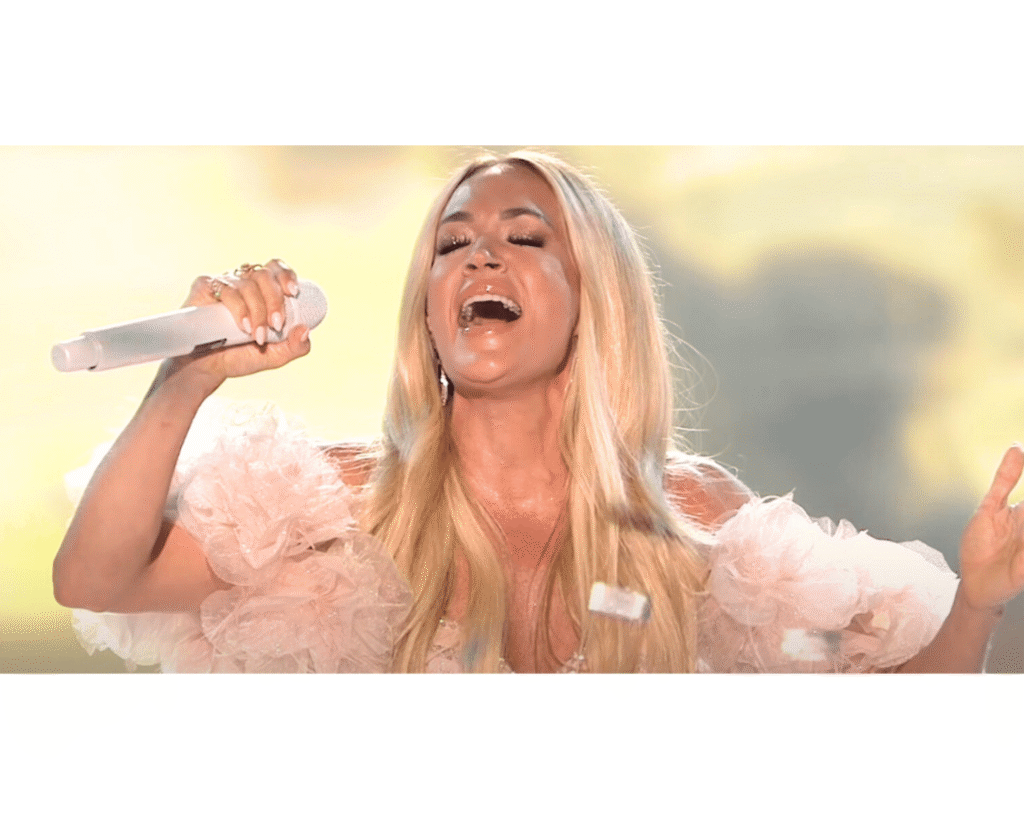When American Idol aired its Easter Sunday special, “Songs of Faith,” and it was powerful. Spearheaded by judge Carrie Underwood, the episode raised eyebrows with gospel and worship music from the Top 20 contestants and featured performances by faith-forward artists like CeCe Winans and Brandon Lake. Underwood herself closed the night with a soaring rendition of How Great Thou Art.
The show trended immediately—but not just for the talent. Viewers were deeply divided. Some called the night “beautiful” and “long overdue,” while others felt blindsided, calling it “exclusionary,” “too religious,” or even “triggering.” The backlash wasn’t just online. Behind the scenes, tension was reportedly high, with some producers concerned the religious theme was inappropriate for a secular competition.
And so, a larger question emerges: Does faith have a place in mainstream entertainment?
Faith On Center Stage
Carrie Underwood is far from the first artist to bring personal belief to the main stage. From Kanye West’s Sunday Service to Chance the Rapper’s Coloring Book, artists across genres have used their platform to express spirituality. In country music, references to God are common. But in other corners of the industry, religious expression often comes with controversy—or is carefully softened to avoid alienating audiences.
It’s not just Christianity either. Zayn Malik, formerly of One Direction, has spoken about navigating his Muslim identity in pop culture. Comedian Hasan Minhaj has openly discussed balancing his faith with the demands of mainstream comedy. And Sikh rapper Humble the Poet has built an entire brand around authenticity and spiritual philosophy.
Expression vs. Inclusion
The core tension isn’t belief—it’s balance. Should artists be free to express deeply held convictions? Most would say yes. But what happens when a network show, like American Idol, leans into one faith tradition during primetime?
Carrie Underwood didn’t force anyone to sing worship music. Contestants chose songs that aligned with their own spiritual stories. But critics argue that giving a whole episode to one faith—on Easter, no less—implied a priority that left others out. Underwood, for her part, has been unapologetic. “This is who I am,” she has said in past interviews. “My faith is not something I hide.”
What It Reveals About Us
Faith-based moments in mainstream media do more than raise eyebrows —they reveal values, divisions, and the questions we’re often too polite to ask. Can a show like American Idol create space for both expression and inclusion? Can we listen to each other’s beliefs without assuming threat or superiority?
That’s the real tension behind Carrie Underwood’s eyebrow-raising performance. And it’s not going away.
So I want to hear from you.
Does faith have a place in mainstream entertainment?Can artists share belief without crossing a line? Where is that line, and who gets to draw it?
Drop your thoughts in the comments or message us at @RedxNews
If you want to hear more faith-based and inspiring content from me, follow me on Facebook.


